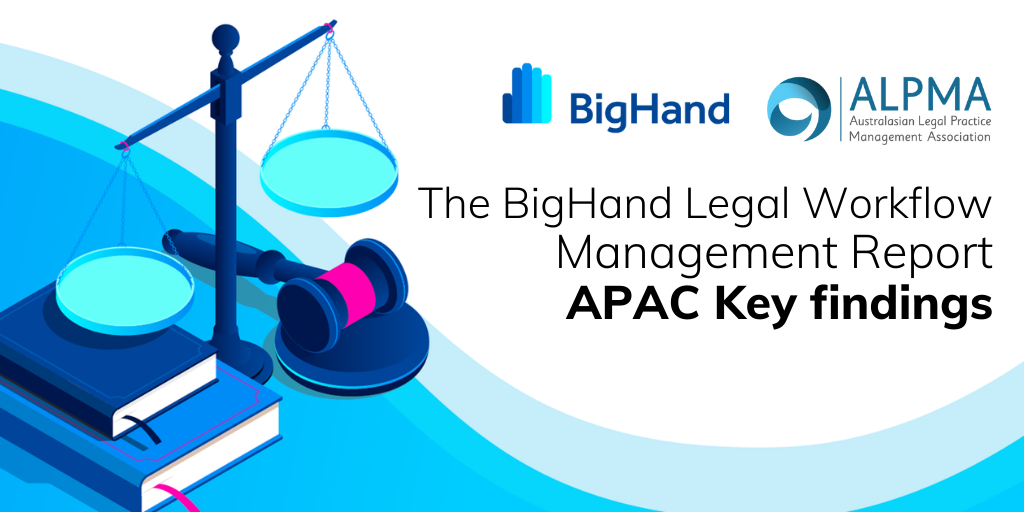Many would likely agree that life, in general, was far simpler before 2020. We took the ease of everyday tasks for granted and for the most part we were on autopilot lacking a sense of urgency, in some respects, for decision making that drove change, short-term discomfort, but with promises of improved productivity, efficiencies, sustainability and the longevity of our firms.
Now, I’m not saying that firms wouldn’t have evolved in the end, but a global pandemic certainly did speed things up a little. It added a sense of urgency, an openness and willingness to rethink how we do things, broke down barriers and increased opportunities to collaborate, invited a chance to question the importance of each task being undertaken within firms and to simply ask the question, “is there a better way?” A true blessing in disguise.
Since early 2020 some firms rapidly adopted and embraced the opportunities to review and rethink their entire business models including the use of technology platforms, improved workflow & communication systems, remote employment working relationships and much more. Notwithstanding the many different challenges, a standout challenge for all firms, regardless of size, centred around communication, delegation and workflow systems in a completely virtual environment. Removing the ability to communicate physically made alternate forms of visibility over legal work a priority.
Thanks to BigHand, who conducted a global Legal Workflow Management survey in May 2021, we now have a better understanding of how firms were impacted by the pandemic with a comprehensive report outlining the global measures seen and the steps firms have taken to combat these challenges as a result. For example, this report highlighted the need for better visibility of work allocation – with 53% of APAC firms citing, as a recognized challenge of hybrid working environments, the need for lawyers to undertake more administrative work instead of delegating to support staff.
Whilst the report was conducted on a global scale covering the UK, North America and APAC some fairly distinct regional findings were seen. To discuss these local findings, particularly within the APAC region, the Australasian Legal Practice Management Association teamed up with BigHand and some key leaders within two Australian law firms. Within this webinar (held in July and can be viewed On-Demand) Kiri Brain, CEO of TurksLegal joined Magdalena Kosior, COO & CFO of Holman Webb Lawyers and Anthony Bleasdale, Managing Director APAC, BigHand to discuss the report findings and their local experiences. Both Kiri and Magdalena shared how their firms were weathering the pandemic, what challenges they have faced and how their firms had adapted so far, whilst highlighting their key observations over the past 18 months.
Given both TurksLegal and Holman Webb Lawyers are proactively driving, and adapting to, their changing working environments we asked both panellists to highlight their top three (3) takeaways over the past 18 months along with their top three (3) tips for firms still considering changes to their support staff models moving forwards. Here are Kiri and Magdalena’s thoughts:
Top 3 takeaways:
Kiri Brain, CEO
|
Magdalena Kosior Molloy, COO & CFO
|
LeadershipWhilst we have adapted to a hybrid working model, leadership teams need to work harder to ensure the culture, connection and collaboration is measured and is “front of mind”. |
LeadershipOperating in uncertain times requires strong leadership, communication, focus and a clear plan of action in order to provide the necessary level of comfort around productivity, staff wellbeing and profitability. The implementation of agile decision-making protocols will allow the firm to adapt quickly to a continually changing environment. |
ClientsBuilding relationships with our clients has shifted. Connecting via technology has become normal and businesses need to continue to evolve and seek ways of providing value add/connection to their clients. |
ClientsThe importance of client service strategy is to deliver the best outcomes for each client – as part of the client experience program, we need to ensure the delivery of what each client considers to be of value – be that cost, expertise or speed. Use technology-driven solutions to obtain visibility across all aspects of service delivery including reports on fees billed vs estimates, percentage of completion at reporting stages and the like. |
DataOur industry has a wealth of data, and that information should be utilised to support key decisions made across all areas of the business. |
Employee EngagementStaff expectation regarding working arrangements has changed. The workplace strategy should allow staff to work from anywhere and at any time, enabling them to achieve a work-life balance according to individual needs and maintain the firm’s culture. This is a big change to the way firms were operating, being predominantly office-bound and paper-heavy. |
Top 3 tips for firms who are considering changes to support staff roles/workflow: |
|
AutomationAutomation to boost process efficiencies provides the opportunity to evolve and develop support staff roles, so they can focus on higher-value work. |
AutomationProcess automation that utilises legal technology solutions will ultimately improve the stakeholder’s experience when dealing with the firm. |
Alternate Solutions to Recruitment Shortages & GapsBusinesses need to think beyond the traditional hiring of support staff and adapt to hiring in these areas as a stepping stone for those interested in or currently studying law. |
Role DesignRethink the role of support staff moving forward. It is important to identify what skills support staff will require to assist professional staff in the future. |
CultureThe hybrid working model is a great opportunity for support staff to be the “glue” or “culture champion” to keep teams connected. |
Communication & Engagement JourneyConsider setting up a knowledge harvesting hub and communicate consistently to your staff to ensure their engagement on the journey of change. |
Whilst findings from the Legal Workflow Management Report indicated that 46% of APAC firms say clients expect work to be completed by the most cost-effective resource, only 60% said they knew the total cost of support teams to the firm and a third (33%) of APAC firms are still manually monitoring some factors such as the volume and type of support tasks, capacity and utilization of support staff and turnaround times. That said, it is also evident that firms understand the need for change, with over half of APAC firms (53%) planning to implement workflow technology over the next 24 months.
Whilst the pandemic has accelerated change and driven efficiencies at a speed previously never seen, it is still evident that there are more back-office workflow efficiencies to be gained in the future as we settle into our new working environments. It is pleasing to see how far many law firms have come over the past 18 months and it’s exciting to think about what else can be achieved in the future.
Access a full copy of the Legal Workflow Management Report. In it you will find information across six key areas:
- The Pandemic, Productivity & Profitability
- The Hybrid Working Revolution
- Escalating Client Demands, Lack of Visibility and Antiquated Reporting
- Changing Support Team Structure
- Support Team Staffing
- The Shift
Resources:
- The Legal Workflow Management Report – Access Report
- The Legal Workflow Management Survey – Review and APAC Findings On-Demand Recording – Watch On-Demand
- Key Takeaways and Questions – Download Handout
- The Legal Support Staff Survey – Access Report






